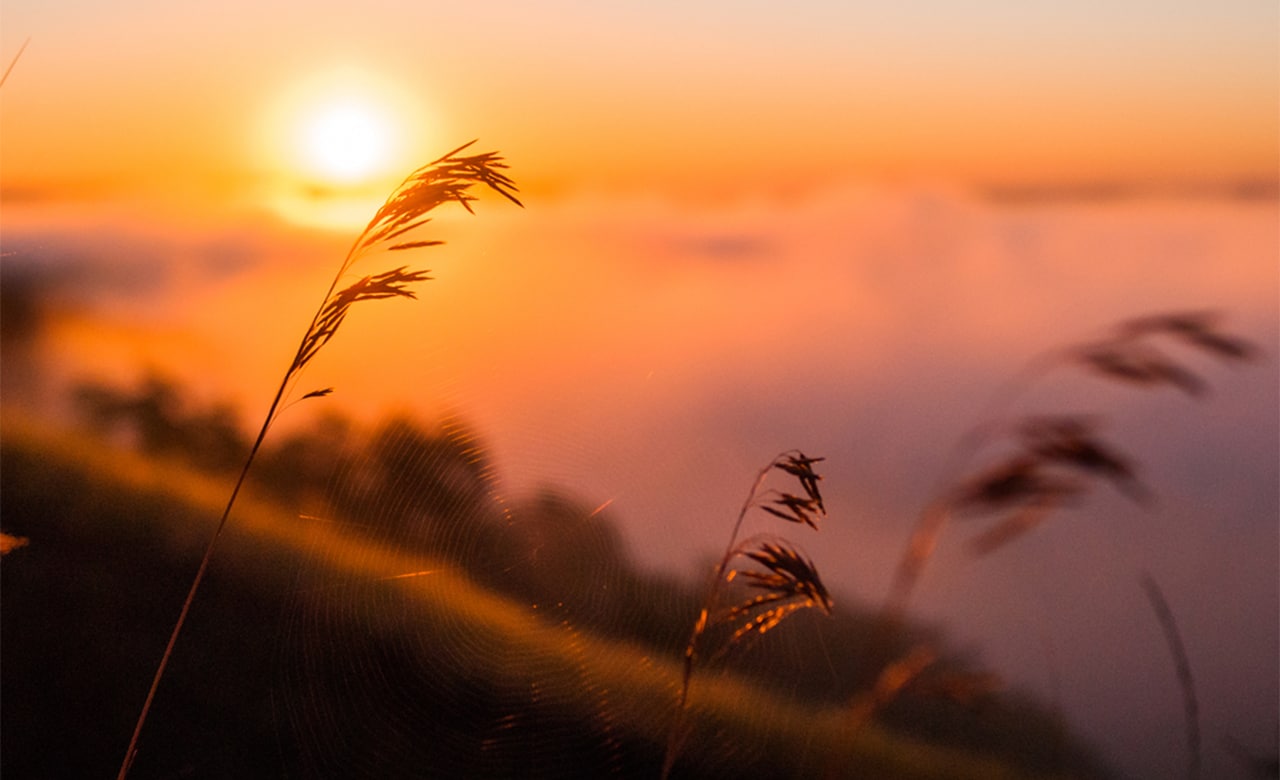
Spirituality
Divine Mother Ushas: The Mother of Dawn
In all cultures across the globe, dawn signifies illumination and hope. It is a symbol of birth, rebirth, and new beginnings. It is the sign of removal of negativities, an act of transformation and renewed passion. In Sanatana, the Dawn is depicted as a powerful Goddess.
In Rigveda, one of the most ancient knowledge sources known to humanity, She is described as a child of heaven, a rider of the noble horses, the one who widely spreads divine glory. Ancient sages call Her by many names, such as the one who makes us breathe and a life giver to all the living things in this universe. But most commonly, She is known as Divine Mother Usha, the Goddess of the dawn. Let’s take a look at Her glory.
Dawn across the ancient cultures of the world:
Many ancient cultures celebrate Dawn as a deity who repels the darkness from the world and the minds of the people. For example, in ancient Egypt, the Goddess Tefnut is considered the divinity of morning dew. In native American tribes, Anpao, the two-faced deity, is regarded as the spirit of the dawn. Even in Christianity, before his fall, Lucifer was often referred to as the morning star.
In Japan, since ancient times, Ame-no-Uzume-no-Mikoto has been the wife of God Sarutahiko Okami. She is the Goddess of meditation, arts, and goddesses of the dawn. In the Philippines, Muang Sumala, the golden Kapampangan serpent child of Aring Sinukuan, represents dawn. In Europe, Hausos, or H₂éwsōs, is considered the Goddess of the morning.
In ancient Roman culture, the Goddess Aurora was a synonym for dawn. It is believed that She renews herself every morning, flying across the sky, announcing the arrival of the Sun. Romans wrote that with God Astraeus, Lord of the stars, She gave birth to Anemoi, the winds. In ancient Greek mythology, the Goddess Eos was the personification of the dawns. Greeks believed that She rises each morning from Her house on the edge of the river Oceanus, delivering the light and dispersing the darkness.
Divine Mother Usha’s appearance:
उदु शरिय उषसो रोचमाना अस्थुरपां नोर्मयो रुशन्तः | कर्णोति विश्वा सुपथा सुगान्यभूदु वस्वी दक्षिणामघोनी ||
भद्रा दद्र्क्ष उर्विया वि भास्युत ते शोचिर्भानवो दयामपप्तन | आविर्वक्षः कर्णुषे शुम्भमानोषो देवि रोचमानामहोभिः ||
-Rigveda 6, Hymn 64
The shining Dawns have arisen for splendour, glistening like the waves of the waters. She makes all pathways, all passages easy to travel. She has appeared— the good priestly gift, the bounteous one. Auspicious, you have become visible; you radiate widely. Your flare and your radiant beams have flown up to heaven. You reveal your breast as you go in beauty, goddess Dawn, shining with all your might.
This is how Rigveda praises the Divine MotHer Usha. She is one of the most praised goddesses in the Vedic period. In ancient texts, She is portrayed as a young woman riding a golden chariot. Her chariot is eitHer drawn by golden red horses or hundreds of cows. Surya, the Sun god, is Her husband, and Her sister is Divine MotHer Nisha, the Goddess of the night.
Often, She is glowing with Her inner radiance and covered in celestial ornaments made by Lord Vishwakarma himself. She is believed to be a skilled dancer with incredible grace, yet she is considered shy and delicate simultaneously. It’s Her who leads the Sun to illuminate the earth and announces His appearance as a sign of illumination, removing the world’s darkness.
Divine Mother Usha as a Goddess and Yogini:
Among 64 yoginis of Tantra, Usha is the one with the duty of world illumination. One of the incarnations of Maa Bhagwati, She has a responsibility of illuminating the mind of a seeker with self-knowledge, repelling the darkness of ignorance. Being a Divine feminine power, She is known to awaken the nobility within the innermost corners of the human souls.
Dawn has several synonyms in Sanskrit. For example, Arunodaya, Prabhat, Uday, etc. But the most appropriate translation of the word is Usha Kal, that is, the time of Divine MotHer Ushas. When She spreads Her divine glory in the form of warm rays over the land, it awakens the living things. But in the intellect of a seeker, Sheawakens insight and more profound revelations towards the higher state of mind.
Waking up before dawn means waking up to invite the grace of Maa Ushas into your life. Waking up before dawn gives numerous health benefits as well. Early risers have better concentration, are more alert, are more energised, with much better cognitive functions.
To wake up early, one has to pray to Divine Mother Nisha (Goddess of the night), the sister of Ma Usha, and sleep early. This provides adequate sleep to the body, improving blood pressure, fundamental brain functions, overall mood, and self-healing abilities of the body. Waking up early puts you in a good mood and focused attitude, reducing stress and improving mental health.
Maa Usha represents the spiritual transformation, an inner self revolution of the soul. She announces the better things to come. She brings rejuvenation energy to the soul of an individual after the dark night, embedded with struggle. We hope you have gained some new insight into who Divine Mother Usha is and how Her grace illuminates the world.
Please subscribe to our mailing list to stay connected and receive information about spirituality. In case of any queries, please write to us at info@chamundaswamiji.com. You can check out our YouTube channel Chamunda Swamiji where you can learn Tantra, Mantra, Yantra, and Meditation from His Holiness Shri Chamunda Swamiji.
Post a Comment
-
Subscribe to Our Blog
-
Categories
-
Popular Articles
- Dead moth in the house. What universe is trying to tell you?
- Spiritual Meaning of Moth
- Vivah Bandhan Curse – What Is It and How to Spiritually Heal It.
- The Dasa Mahavidyas
- What are Beej Mantras?
- Tripura Sundari | The Dasa Mahavidya
- Maa Bhuvaneshwari | The Dasa Mahavidyas
- The Five Shades of Tantra
- Ramakrishna Paramhansa – The Man who almost became a Woman
- Bangles – A Forgotten Tradition – Their Spiritual and Health Benefits



